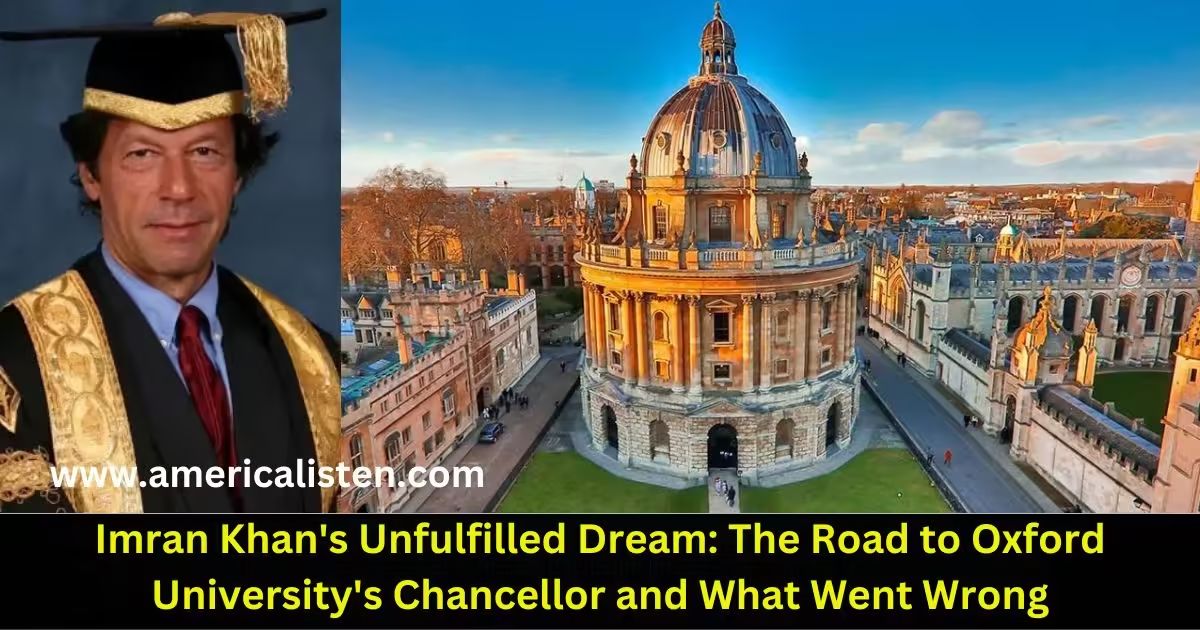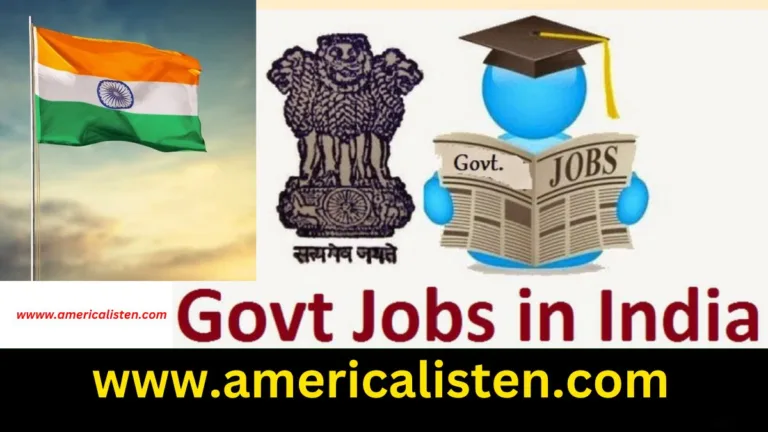Imran Khan’s Unfulfilled Dream: The Road to Oxford University’s Chancellor and What Went Wrong
Imran Khan, the former Prime Minister of Pakistan and a notable Oxford alumnus, aimed to return to his alma mater as the prestigious Chancellor of Oxford University. Despite his ambitious plans and lobbying efforts, his dream fell short as his name was missing from the final list of candidates. Legal challenges and stiff competition from notable figures like Boris Johnson and Sir Norman Foster ultimately ended his aspirations. This article explores Khan’s journey, the challenges he faced, and why his dream of becoming Oxford’s Chancellor remained unfulfilled.
1. Imran Khan’s Dream of Becoming Oxford Chancellor Falls Short
Imran Khan, the former Prime Minister of Pakistan and founder of the Pakistan Tehreek-e-Insaf (PTI) party, has long held a vision of achieving milestones beyond politics. His aspirations have always reached into the global realm, transcending national borders. One such aspiration was becoming the Chancellor of his alma mater, the prestigious Oxford University. Oxford holds a special place in Khan’s life, as it was the institution where he completed his higher education in Philosophy, Politics, and Economics (PPE). To many, it seemed only fitting that the man who once ruled Pakistan with the slogan of “Naya Pakistan” would seek to rule over his beloved university in a symbolic, honorary position.
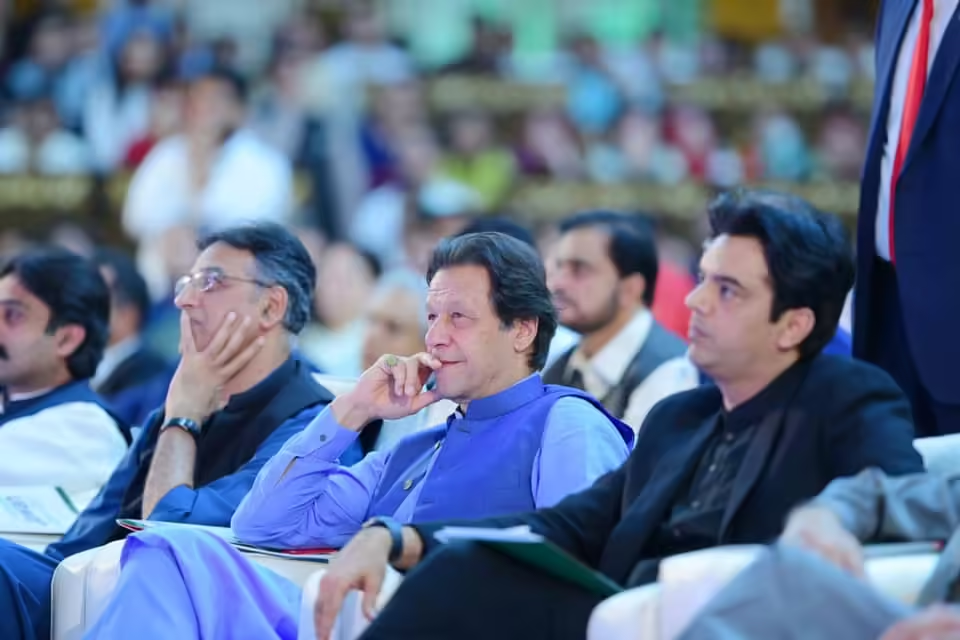
However, despite the ambitious goal, Khan’s dream of becoming the Chancellor of Oxford University appears to have fallen short. With the official list of candidates for the Chancellor’s role recently released, Khan’s name was notably absent. This has raised several questions and brought about discussions regarding the factors that may have contributed to the absence of his candidacy. What went wrong for Imran Khan in this quest to return to Oxford in a new role, and what led to the dream being left unfulfilled?
2. Imran Khan Not Included in Oxford University Chancellor Candidates List
Oxford University’s Chancellor role is highly prestigious and symbolic, often seen as an honorary position filled by notable figures from various fields. The Chancellor represents the university in various ceremonial functions, lending their esteemed public profile to the institution’s already glowing reputation. This election cycle brought forward prominent personalities as candidates, but Khan’s name, despite earlier hints and discussions, was not included.
The list of candidates revealed includes names of high repute, such as former British Prime Minister Boris Johnson, famed British architect Sir Norman Foster, and renowned barrister Peter Craig. While Khan’s supporters had hoped to see him compete, the absence of his name from the list speaks volumes.
Some may argue that Khan’s omission could have stemmed from his ongoing legal challenges or from other political reasons. Whatever the case may be, his absence marks a significant turning point in what could have been a groundbreaking chapter in his post-political life. Khan had the public profile, the personal connection to Oxford, and the charisma to fit the role, but these factors were not enough to secure him a place among the contenders.
3. Oxford Chancellor Role is Symbolic, Top Figures Compete for Position
The Chancellor’s role at Oxford University is not one of day-to-day governance but rather a ceremonial and symbolic position that still holds great significance in the university’s culture and tradition. The Chancellor presides over the university’s grand events, such as graduations and convocations, and represents Oxford in various formal capacities. While the role does not involve direct academic responsibilities or administrative control, it remains a coveted position due to its historic importance and its association with one of the world’s top academic institutions.
Given its prestige, many top figures compete for the position whenever it becomes vacant. This year’s list of candidates reflects a diverse set of high-profile individuals from politics, law, and architecture. Boris Johnson, the former Prime Minister of the United Kingdom, stands out as a formidable candidate due to his leadership background and public recognition. Sir Norman Foster, one of the most acclaimed architects in the world, also brings a different kind of prestige with his contribution to global architecture. Barrister Peter Craig, known for his legal expertise, completes the trio of strong contenders.
The competition for this symbolic role is fierce, and while Imran Khan may have had a strong personal connection to Oxford, the candidacy requires more than just alumni status. His rivals bring varied but powerful credentials that resonate deeply with the university’s values of academic and professional excellence.
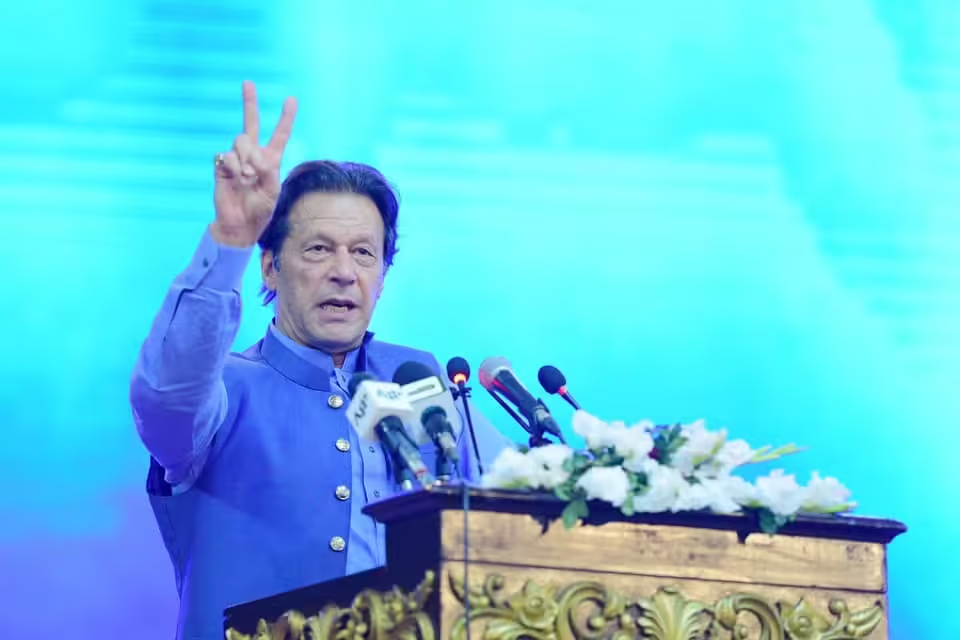
4. Boris Johnson, Sir Norman Foster, and Barrister Peter Craig Among Candidates
The list of candidates vying for the Chancellor’s role at Oxford features an impressive array of personalities. Former UK Prime Minister Boris Johnson, who himself is an Oxford alumnus, leads the pack. Johnson’s time at Oxford as a student shaped his political philosophy and approach to leadership. His candidacy could appeal to both traditionalists and reformists within the university. While his tenure as Prime Minister was met with controversy, Johnson’s ties to Oxford remain strong, and he is expected to attract significant support from certain quarters.
Sir Norman Foster, an internationally renowned architect, is another name that commands respect. Foster’s contributions to architecture, including iconic buildings like the Millennium Bridge in London and the Hong Kong International Airport, showcase his immense talent and vision. He, too, has a personal connection to Oxford, having worked on several projects related to university buildings. Foster’s candidacy represents a marriage of tradition and modernity, as he seeks to blend Oxford’s rich history with contemporary architectural innovation.
Barrister Peter Craig rounds out the list of key candidates. As a legal professional with a distinguished career, Craig brings a wealth of legal knowledge and experience. His deep understanding of law, governance, and public service aligns with Oxford’s intellectual rigor and its longstanding commitment to upholding academic freedom and the rule of law. Craig’s candidacy represents a legal perspective that may resonate with Oxford’s academic community.
5. PTI Leader Zulfi Bukhari Confirms Lobbying Firms Hired for Khan’s Campaign
In the run-up to the Oxford University Chancellor elections, PTI leader Zulfi Bukhari confirmed that Imran Khan’s team had hired lobbying firms to support his candidacy. This move highlighted the seriousness of Khan’s campaign, as securing the Chancellor role at Oxford was no small ambition. Lobbying firms were brought on board to navigate the complex political and academic environment of the university and to gather support for Khan’s bid.

Bukhari, a close confidant of Khan, revealed that the campaign had reached a stage where professionals needed to be involved to ensure that Khan’s voice was heard in the right circles. The hiring of lobbying firms signalled that Khan’s team was willing to go the extra mile in their efforts to secure the role for the PTI founder.
However, the decision to involve external lobbying firms also sparked some controversy. Critics argued that such efforts went against the spirit of the election, which is traditionally seen as a more low-key and internal process. Despite the criticism, Bukhari defended the decision, stating that the hiring was a strategic move to boost Khan’s chances.
6. Lobbying Efforts for Imran Khan’s Oxford Campaign Initiated, Says Bukhari
Zulfi Bukhari’s confirmation of lobbying efforts was a clear indication that Imran Khan’s team was serious about securing the Oxford Chancellor position. According to Bukhari, the lobbying firms were tasked with handling media relations and helping shape the narrative around Khan’s campaign. The aim was to present Khan not just as a former political leader but also as an academic and cultural figure who could connect with the university’s global standing.
Lobbying in such prestigious elections is not uncommon, and many candidates often employ teams of advisors to help them navigate the electoral process. Khan’s team recognised that the competition was fierce, with candidates like Boris Johnson and Sir Norman Foster bringing substantial public profiles to the table. Therefore, a well-coordinated campaign was essential to make Khan’s case as compelling as possible.
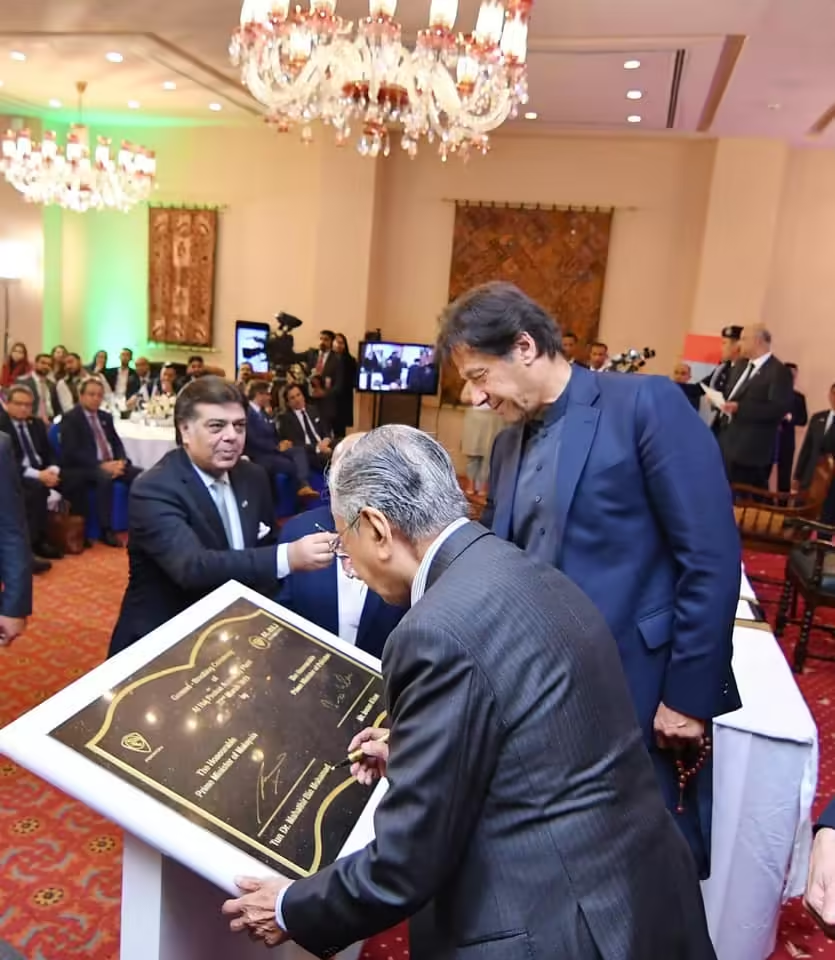
Despite these efforts, the fact that Khan did not even make the final list of candidates suggests that the lobbying might not have been as effective as hoped. It also highlights the challenges that Khan faced, both from within the university’s traditionalist elements and from external factors related to his political past.
7. Bukhari: No Financial Aid Taken for Lobbying Firms in Khan’s Campaign
In the face of growing speculation about the funding for Imran Khan’s campaign to become Oxford’s Chancellor, Zulfi Bukhari was quick to clarify that no external financial aid had been taken to fund the lobbying efforts. Bukhari reassured critics that the lobbying firms were hired using private funds, and no donations or public money were used to finance the campaign.
Bukhari’s statements came in response to accusations that funds were being solicited from political supporters to back Khan’s bid for the Oxford role. Such accusations, if true, would have cast a shadow over Khan’s campaign, as it would suggest an improper mixing of political and academic ambitions. Bukhari, however, was firm in his stance, stating that the campaign was being run independently and without financial reliance on any political donors.
This clarification aimed to quell the controversy and prevent any negative backlash that might have hurt Khan’s already fragile candidacy. Bukhari’s defence emphasised the transparency and integrity of the campaign, though it did little to change the final outcome of Khan not making the list.
8. European Experts to Assist Khan’s Chancellor Campaign in Europe
As part of the wider lobbying efforts, Zulfi Bukhari also revealed that Khan’s team had planned to bring in European experts to further assist the campaign once it moved beyond the UK. According to Bukhari, these experts were expected to lend their experience in political and academic campaigning to help boost Khan’s chances.
The idea was to position Imran Khan as not only a Pakistani political figure but also as a global leader with a strong European and international following. Khan’s status as a former international cricketer and global philanthropist gave him a unique profile that could appeal to Oxford’s international students and alumni network.
This strategy, however, faced numerous challenges. First, there was the issue of timing. With Khan’s political career still a significant part of his identity, it was difficult to rebrand him solely as an academic or cultural figure. Second, the legal and political obstacles that Khan faced in Pakistan were hard to separate from his international persona. These factors limited the effectiveness of the European experts’ involvement and contributed to the overall failure of the campaign.
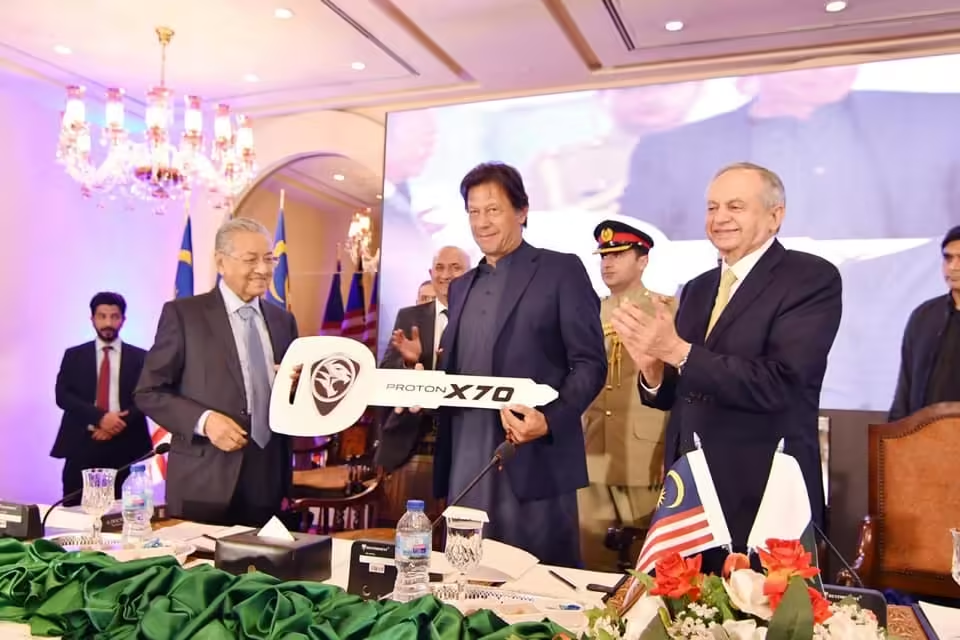
9. Matrix Chambers: Imran Khan
Ineligible for Oxford Chancellor Role
One of the most significant blows to Imran Khan’s campaign came from Matrix Chambers, a leading legal firm, which issued a statement regarding Khan’s eligibility for the Chancellor position. The legal firm concluded that Khan was ineligible to run for the Chancellor role based on Oxford University’s rules and regulations. This revelation dealt a severe blow to Khan’s aspirations, as it was rooted in the university’s formal requirements.
According to Matrix Chambers, the issue stemmed from Khan’s legal challenges in Pakistan. He had been convicted in some cases, which legally disqualified him from holding certain formal roles in international institutions like Oxford. The university’s Chancellor role, while largely ceremonial, still required a clean legal record, and Khan’s criminal convictions created an insurmountable obstacle.
This legal barrier raised questions about whether Khan’s team had properly researched the requirements before launching the campaign. It also underscored the importance of understanding institutional rules when pursuing positions in prestigious universities like Oxford.
10. Legal Expert Cites Criminal Conviction as Barrier to Khan’s Eligibility for Chancellor
The final nail in the coffin for Imran Khan’s Chancellor campaign was his criminal conviction, which made him ineligible for the role. Senior legal experts, including Hugh Southey, weighed in on the matter, stating that Khan’s criminal record disqualified him from being considered for the Chancellor role under Oxford’s regulations.
While Khan’s supporters might have hoped that his political influence and international stature would outweigh these legal issues, the reality was that Oxford University adhered strictly to its rules. The legal experts’ assessments made it clear that there was no way around the disqualification, effectively ending Khan’s chances of becoming Chancellor.
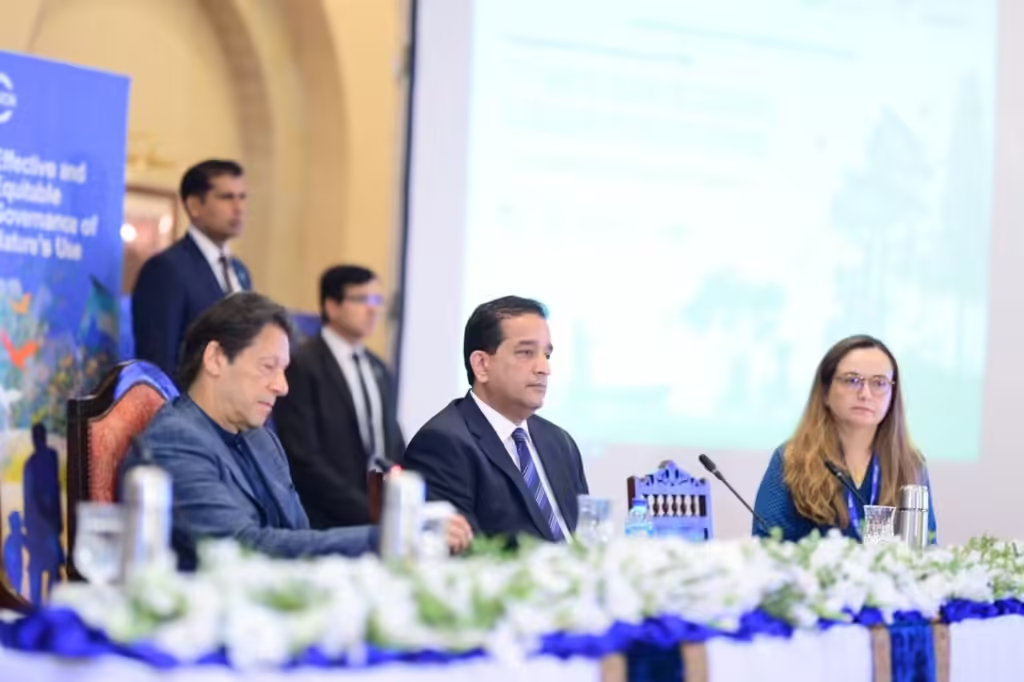
This development highlights the importance of a clean legal standing for candidates pursuing roles in international institutions. For Khan, it was a bitter pill to swallow, as his dream of becoming Oxford’s Chancellor was thwarted not by a lack of support but by his past legal troubles.
In conclusion, Imran Khan’s quest to become the Chancellor of Oxford University was filled with ambition, strategy, and high hopes. However, a combination of legal challenges, strong competition, and an overly ambitious lobbying campaign contributed to the ultimate failure of his bid. Khan’s dream of returning to Oxford as its Chancellor may have fallen short, but the journey revealed much about the complexities of such campaigns and the difficulties of transitioning from a political career to a symbolic academic role.
